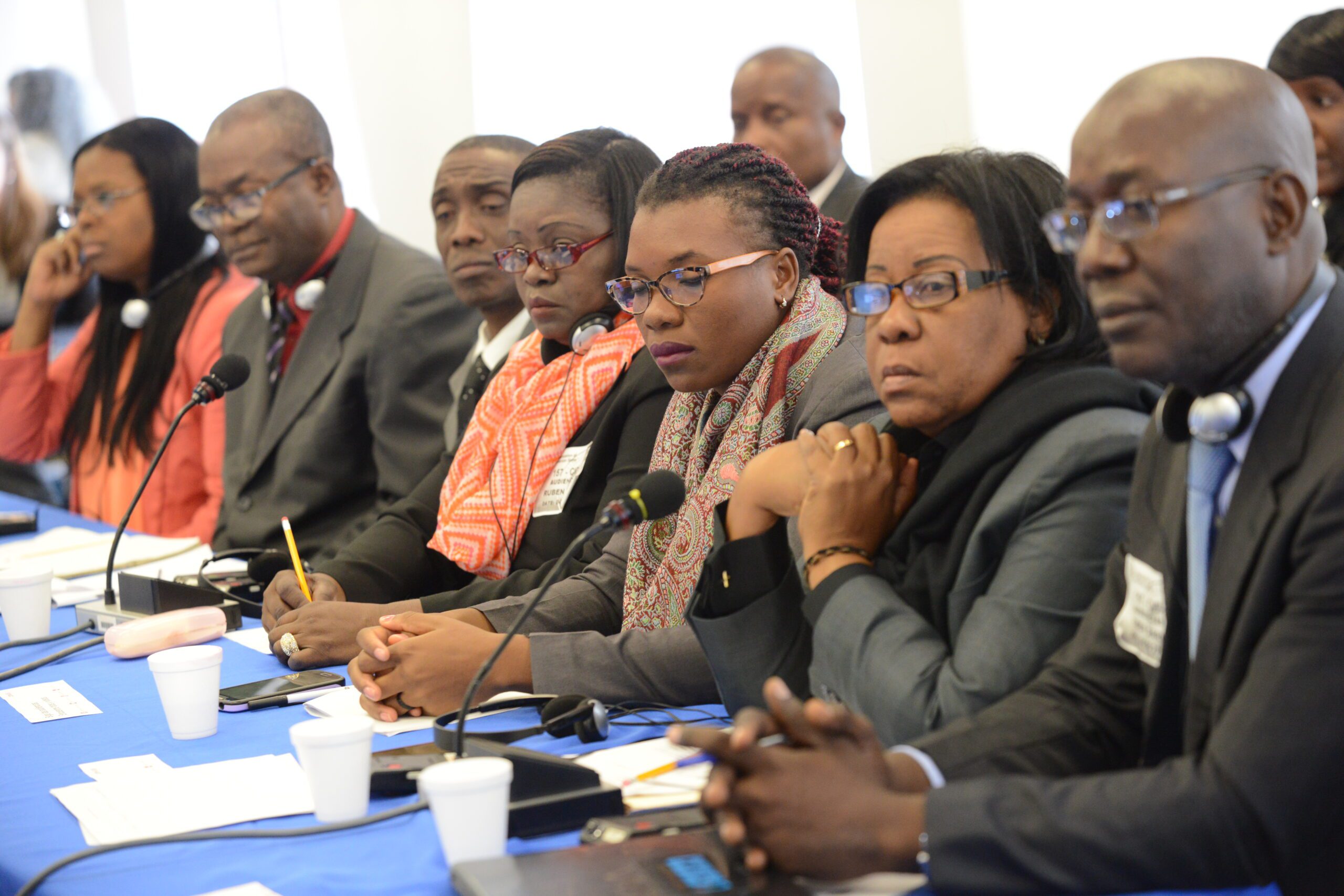Inter-American Commission on Human Rights Insists that the Dominican Government Recognize Existence of Structural Racial Discrimination in the Country
Photo courtesy of OAS photographer Daniel Cima, licensed under CC BY 2.0. Washington, D.C., April 8, 2016 “The Dominican Republic must recognize the existence of structural racial discrimination in the country,” said Emilio […]

Washington, D.C., April 8, 2016
“The Dominican Republic must recognize the existence of structural racial discrimination in the country,” said Emilio Álvarez Icaza, Executive Secretary of the Inter-American Commission on Human Rights (IACHR), to the delegation of the Dominican Republic during a thematic hearing held Friday, April 8 at the Organization of American States (OAS).
Human rights defenders from the Dominican Republic presented to the Inter-American Commission on Human Rights on the grave rights situation of Dominicans of Haitian descent, including the precariousness of their right to nationality and the discrimination by State agents they face when attempting to access their identity and electoral documents. In light of upcoming elections in the Dominican Republic scheduled for May 15, the petitioners drew particular attention to the effects of these types of violations on the political rights of Dominicans of Haitian descent, particularly in regard to the right to vote and hold office.
Unfortunately, the remarks made by the Dominican mission demonstrated very little willingness to engage in a constructive dialogue. Representatives of the State expressed their unhappiness with Commission for granting the hearing and then denying the government’s request for postponement. Even more worrisome, the government continued to deny the existence of discrimination of any kind in the country.
Faced with the Dominican government’s intransigence, the Commission responded forcefully. Addressing the State, Secretary Executive Álvarez reminded the delegation that despite the government’s objections, “continuing to address this issue is a manifestation of the Commission’s grave concern,” and that the State’s position “to deny that a problem of racial discrimination exists reproduces rights violations institutionally, socially and culturally.” Secretary Álvarez reiterated that the findings of the Commission in its report on human rights in the Dominican Republic, “showed the structural denial of economic, social and cultural rights of Dominicans of Haitian origin,” who suffer “undeniable conditions of poverty and a lack of rights.” Referring to the State’s stance during the hearing, Secretary Álvarez affirmed that “today we have seen yet another chapter in the expression of structural racism.”
Representatives of Dominican civil society informed the Commission of actions by the Central Election Board (Junta Central Electoral) that have resulted in thousands of Dominicans of Haitian descent being denied their basic identity and electoral documents, and testified that this could have grave consequences in the elections scheduled for May. The petitioners accused the Electoral Board of executing the Dominican State’s policy of restricting the political and electoral rights of Dominicans of Haitian descent, calling the Board the primary obstacle to the enjoyment of these rights and citing the institution’s “confrontational, belligerent attitude and unwillingness to dialogue or seek solutions.” This portrayal was echoed by Secretary Álvarez, who added in his remarks that “the Central Electoral Board has been an institutional apparatus responsible for reproducing discrimination.”
In conclusion of their testimony, the petitioners recommended to the Commission that it urge the Dominican government to ensure Dominicans’ equal enjoyment of political rights regardless of their families’ origin. They also urged reform of the civil registry and electoral system to ensure non-discrimination, and recommended affirmative actions be taken to ensure that the political rights of vulnerable groups are protected, calling for the establishment of a Permanent National Dialogue Table where civil society groups and the government can work together toward these ends. The Petitioners asked that the Commission’s Rapporteur on the rights of migrants be included in the OAS’ electoral observation delegation schedule to visit the country for the elections scheduled for May 15th.
To access video of the hearing, follow this link.

